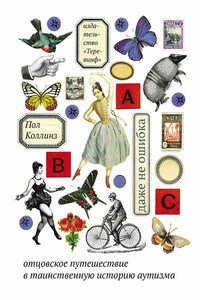Chapter One
A State Secret
“Whoso findeth a wife findeth a good thing, and obtaineth favour of the Lord.” – Proverbs xviii, 22.
“Have those urgent dispatches come in from Berlin, Deedes?”
“Captain Hammerton has not yet arrived,” I answered.
“Eleven o’clock! Tut, tut! Every moment’s delay means greater risk,” and the Earl of Warnham, Her Majesty’s Principal Secretary of State for Foreign Affairs, strode up and down his private room, with his hat still on, impatiently snapping his bony fingers in agitation quite unusual to him.
“Hammerton wired from Berlin yesterday, when on the point of leaving,” I observed, taking a telegram from the table before me.
“In cipher?”
“Yes.”
“No accident is reported in the papers, I suppose?”
“Nothing in the Times,” I replied.
“Strange, very strange, that he should be so long overdue,” the Earl said, at last casting himself into his padded chair, and lounging back, his hands thrust deep into his pockets as he stared thoughtfully into space.
I resumed my writing, puzzled at the cause of the chief’s excited demeanour, but a few moments later sharp footsteps sounded outside in the corridor, followed by a loud rapping, and there entered the messenger, clad in his heavy fur-lined travelling coat, although a July morning, and carrying a well-worn leather dispatch-box, which he placed upon my table.
“Late, Hammerton. Very late,” snapped the Earl, glancing at his watch.
“There’s a dense fog in the Channel, your Lordship, and we were compelled to come across dead slow the whole distance. I’ve driven straight from the station,” the Captain answered good-humouredly, looking so spruce and well-groomed that few would credit he had been travelling for nearly twenty-four hours.
“Go and rest. You must return to-night,” his Lordship said testily.
“At seven-thirty?”
“Yes, at my house in Berkeley Square.”
Then, taking up the receipt I had signed for the dispatch-box, the messenger, to whom a journey to Constantinople or St Petersburg was about as fatiguing as a ride on the Underground Railway is to ordinary persons, walked jauntily out, wishing us both good-day.
When the door had closed, Lord Warnham quickly opened the outer case with his key, and drew forth a second box, covered with red morocco, and securely sealed. This he also opened, and, after rummaging for some moments among a quantity of papers, exclaimed, in a tone of satisfaction, —
“Ah! Here it is. Good! Seals not tampered with.”
Withdrawing from the box a large official envelope, doubly secured with the seal of the British Embassy at Berlin, and endorsed by Sir Philip Emden, our Ambassador, he walked hastily to one of the long windows overlooking the paved courtyard of the Foreign Office, and for some moments closely scrutinised both seals and signature.
“Did you fear that the papers might have been examined in transit?” I inquired of my grave-faced chief in surprise.
“No, Deedes, no. Not at all,” he answered, returning to his table, cutting open the envelope, and giving a rapid glance at its contents to assure himself that it was the same document he had sent to the German capital a week before. “Hammerton is trustworthy, and while dispatches are in his care I have no fear. The only apprehension I had was that an attempt might possibly have been made to ascertain the nature of this treaty,” the great statesman added, indicating the document beneath his hand.
“The result would be detrimental?” I hazarded.
“Detrimental!” he cried. “If the clauses of this secret defensive alliance became known to our enemies war would be inevitable. Russia and France would combine, and the whole of the Powers would become embroiled within a week. Exposure of these secret negotiations would be absolutely disastrous. It would, I verily believe, mean irretrievable ruin to England’s prestige and perhaps to her power.”
He uttered the ominous words slowly and distinctly, then carefully refolding the precious document, with its string of sprawly signatures, he placed it in another envelope, sealing it with his own private seal.
The great statesman, the greatest Foreign Minister of his time, upon whose tact, judgment and forethought the peace and prosperity of England mainly depended, was tall and thin, with scanty, white hair, a pale, refined face, slightly wizened by age, deep-sunken, steely eyes, shaggy brows, a sharp, straight nose, and a breadth of forehead indicating indomitable perseverance and an iron will. His reputation as brilliant orator and shrewd and skilful diplomat was a household word throughout the civilised world, whilst in our own land confidence always increased when he was at the head of Foreign Affairs. As his confidential private secretary, I, Geoffrey Deedes, had daily opportunities of observing how conscientiously he served his Sovereign and his country, and how amazing was his capacity for work. With him, duty was always of paramount consideration; he worked night and day to sustain England’s honour and welfare, for times without number I had gone to his great gloomy house in Berkeley Square in the middle of the night and roused him from his bed to attend to urgent dispatches.














